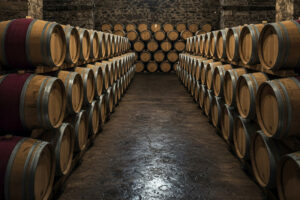Customs duties, for those who live off trade, are, in general, always something negative. But after so many alerts, there are those who say that the U.S. duties, in the end, can even help the Made in Italy food and agriculture overseas. The measure taken by the President of the United States towards many products from different countries of the European Union, including Italy, has burned down, for weeks, newspapers and television news, between estimates of losses of millions and trends in the general market. But, between the general pessimism, comes an analysis that would seem to turn the situation totally on its head: is that of Lucio Miranda and Muriel Nussbaumer, president and CEO of ExportUsa, a consulting society that helps companies and professionals to successfully enter the American market, according to which, in fact, the increase in import duties will result in a drop in exports for Italy of 150 million dollars (of cheese and liquor, the only ones actually affected in the agri-food sector), while it will generate an increase in Italian exports for 320 million dollars of wine, oil, industrial goods and other categories of products of lower value, with a net growth of Italian exports for 170 million dollars per year. And the reason for this would be very simple: the increase in American duties affects Spanish oil but not Italian oil, French wine and Spanish wine, but not Italian and some German industrial products, but not Italian. Thus, Italian products would carve out a share of the market that would otherwise already be “occupied” by products from other countries. Taking into consideration the situation of the Italian wine, for example, the experts of ExportUsa say: “Here the dish is richer. In 2018, French wine exports to America amounted to 1 billion dollars, plus 171 million wine exports from Spain and 90 million dollars for German wine imports. In total, wine sales in America from France, Germany and Spain amount to $1,250 million. Sales of Italian wine in America are likely to increase due to a substitution effect due to rising consumer prices in the American market for French, Spanish and German wine. Let’s assume a 20% substitution effect because of the very strong contacts that Italian wineries have with the distribution in America. All this translates into an increase in sales of Italian wine in the United States of 250 million dollars”.
The same reasoning can be applied to the olive sector: at the moment, the duties on imports of olive oil into America are 10%. Since October 18, the new duties on oil imports have increased to 35% for Spain, but not for Italy. “In 2018, exports of olive oil from Spain to America - they explain - amounted to 252 million dollars. As a result of the new American duties on the import of oil from Spain, consumer prices of Iberian oil in America will increase on average by 13-14%. Is it plausible that, as a result of the price increase, sales of Spanish oil will fall and that part of this fall will be compensated by Italian oil? That's obvious. Shall we say 20%? Yes, also because Italy is in first place for the export of oil to America, so there are commercial connections to take advantage of this situation. We can assume - they emphasize - 50 million dollars of additional sales for Italian oil in America”.
But there are also those products that have been included in the long list of products on which American duties have come into force, such as, in the case of Italy, two kinds of cheese that symbolize Italian gastronomic excellence abroad, Parmigiano Reggiano and Grana Padano. Also for their case, Miranda and Nussbaumer seem to observe the situation from a completely different angle. “The main part of the controversy - they point out - started from the trade associations of Parmigiano Reggiano and Grana Padano, whose exports to America would be affected at heart by the increase in duties. Let's try to see - they continue - the scenario of the increase in duties on Parmigiano and Grana with the eyes of an American housewife who is about to buy them. Let’s consider the “half-pound” (or 226 grams) which, for cheese, is the most common consumption unit in America. Half a pound of Parmigiano Reggiano now costs the public about 11 dollars, while half a pound of Grana Padano costs the public about 4.50. After the increase in duties, prices would go to Parmigiano Reggiano 12.50 (+1.50) and Grana Padano 5.30 (+0.80). Do we really think that an increase in retail prices of this magnitude could cause the total collapse of sales of Parmigiano and Grana in America? Maybe not”.
Finally, the consequences of the increase in duties on exports of Italian liqueurs to America are taken into consideration. “The total turnover of Italian liquor exports to the USA is worth 190 million dollars. Here too, duties would increase by 25%. We are convinced that the price elasticity of demand for liqueurs, such as Campari or Aperol, is rather low. There are no substitutes for these two products and those who appreciate them will continue to order it even if the price increases. However, we can assume that Italy will lose $25 million in liquor sales in America as a result of increased duties”, they conclude.
Copyright © 2000/2026
Contatti: info@winenews.it
Seguici anche su Twitter: @WineNewsIt
Seguici anche su Facebook: @winenewsit
Questo articolo è tratto dall'archivio di WineNews - Tutti i diritti riservati - Copyright © 2000/2026







































































































































































































